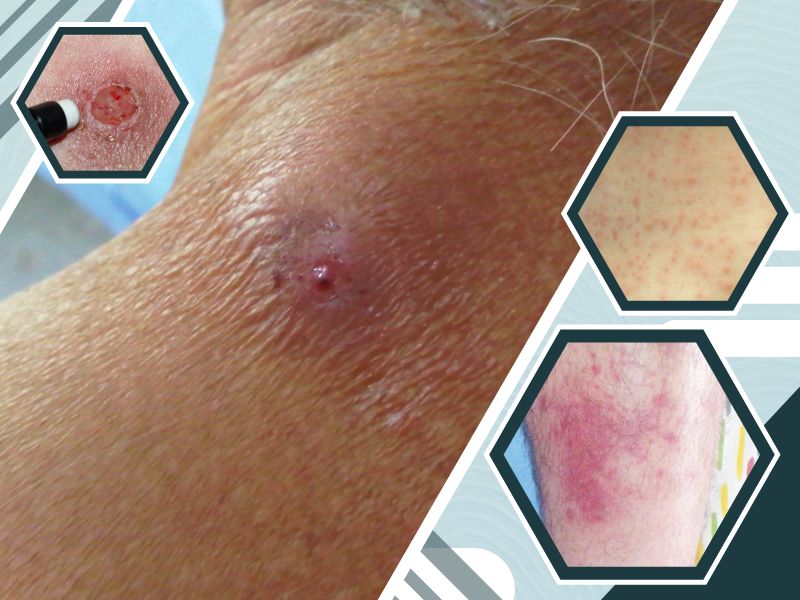Bacterial Skin Infections

Skin is known to be the largest organ of the body. Its function is to protect your body from infection. Sometimes the skin itself becomes infected. Skin infections are caused by a wide variety of germs, and symptoms can vary from mild to serious. Mild infections may be treatable with home remedies and over-the-counter medications, whereas other infections may need medical attention.
Causes
The skin offers an unusually good barrier against bacterial infections. Even though various bacteria come in contact with or reside on the skin, they are usually unable to establish an infection. When bacterial skin infections do happen, they can range in size from a tiny spot to the entire body surface. They can range in seriousness as well, from harmless to life-threatening.
Bacterial skin infections develop when bacteria enter through hair follicles or through small breaks in the skin that result from punctures, scrapes, burns, surgery, sunburn, insect bites, wounds, and preexisting skin disorders.
Risk Factors
Some people are at particular risk of developing skin infections:
- Older people
- People who are hospitalized or living in a nursing home
- People who are undergoing chemotherapy or treatment with other drugs that suppress the immune system
- People with diabetes, have a high level of sugar in their blood, who are likely to have poor blood flow, which lessens their ability to fight infections
- People who have HIV, AIDS, or other immune disorders, or hepatitis
Symptoms
If you think your skin may be infected, watch for these signs:
- Swelling that gets worse after a few days
- Pain that gets worse after a few days
- Sores that look like blisters
- Red skin around the injury
- Fluid leaking out of the cut
Diagnosis
To diagnose a skin infection, your doctor will start by looking at the affected area and any sores or bumps. They may also ask you about your symptoms. Since skin infections can result from many different types of germs, you may need lab tests to get a proper diagnosis. The doctor will collect samples of fluids, pus, or skin scrapings and send them to a lab for more testing. This will help them give you the right treatment.
Treatment
If you have an infection, your doctor may prescribe medicine.
Bacterial infections are often treated with topical antibiotics applied directly to the skin or with oral antibiotics. If the strain of bacteria is resistant to treatment, treating the infection may require intravenous antibiotics administered in the hospital.
In addition to medications, home care for skin infections works to lessen symptoms. Home care may include:
- Take over-the-counter antihistamines to lessen itching
- Apply cold compresses to your skin several times a day to decrease inflammation and itching
- Use topical creams and ointment to reduce itching and discomfort



